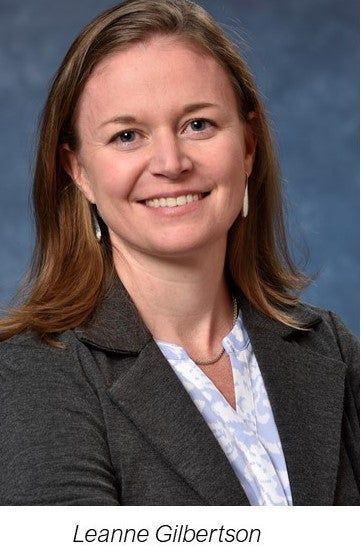 Any enterprise needs financial support at the early stage. The National Science Foundation (NSF) offers just that kind of support through its CAREER Awards, provided to early-career researchers for work that produces lasting value. Call it venture capital for science.
Any enterprise needs financial support at the early stage. The National Science Foundation (NSF) offers just that kind of support through its CAREER Awards, provided to early-career researchers for work that produces lasting value. Call it venture capital for science.
Pitt researchers have been successful in securing CAREER grants. With expanding support from Pitt Research, that success is increasing. Of the 100 grants won by Pitt researchers since 1999, 35 have been awarded just since 2017.
"When someone wins a CAREER award, it puts them in very good company," says Rob A. Rutenbar, senior vice chancellor for research.
The Office of Sponsored Programs (OSP) offers workshops for aspiring applicants. "We think about a strategic approach," explains Ryan Champagne, OSP assistant director for research development. "We initially created a 'CAREER Grants 101' session to help faculty with planning, and have made it into something more robust for sharing proposal development strategies."
The OSP has added sessions with NSF program officers; information on planning budgets; and a panel discussion next month with recent winners. (Register for the March 2 session here.)
The time frame of CAREER grants is unique -- five years rather than the typical three. Leanne Gilbertson, associate professor of civil and environmental engineering, was awarded a CAREER grant in Fall 2021. "The sustained support makes a difference," she explains. "Five years is time enough to develop a creative new idea to the point of testing its feasibility." She will be participating in the March 2 panel.
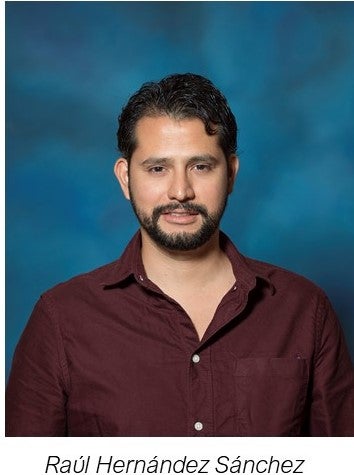 Educational outreach is significant in CAREER awards. Raύl Hernández Sánchez, assistant professor of chemistry, has a grant to improve the conductivity of nano-scale molecular wires. At the same time, the grant supports expanding science workshops for high school and undergraduate students in the U.S. and Mexico, where he is the coordinator for his hometown of Chihuahua City. Hernández Sánchez will also be part of the March 2 panel.
Educational outreach is significant in CAREER awards. Raύl Hernández Sánchez, assistant professor of chemistry, has a grant to improve the conductivity of nano-scale molecular wires. At the same time, the grant supports expanding science workshops for high school and undergraduate students in the U.S. and Mexico, where he is the coordinator for his hometown of Chihuahua City. Hernández Sánchez will also be part of the March 2 panel.
In Pittsburgh, he works with the Alliance for Diversity in Science and Engineering to present two well-attended seminars in public schools. The first was at Brashear High School in Pittsburgh's Beechview neighborhood, a mixed race and primarily working-class school in an area with a growing population from Mexico and Central America. The fall 2021 workshop saw 180 seniors participating.
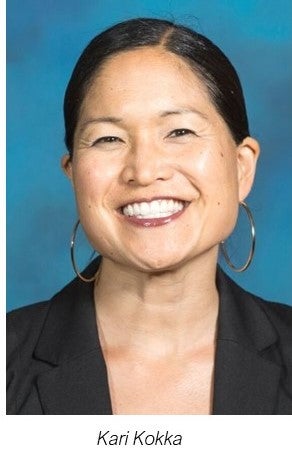 Kari Kokka is another 2021 winner. Her grant doesn't only have an educational component -- her research is education. An assistant professor of mathematics education in the School of Education, her project partners with the mathematics department of an urban public charter high school that serves 65 percent students of color (most of whom identify as African American) to study how mathematics teachers learn to engage students in mathematics tasks based on relevant social issues. The project aims to support teachers’ use of mathematics tasks that simultaneously teach the academic content while investigating social inequities to ultimately take action in the pursuit of justice. At the center of Kokka's project are teachers and students -- how teachers adapt to the social justice approach, and how students feel about mathematics as part of their ability to create change toward an equitable society.
Kari Kokka is another 2021 winner. Her grant doesn't only have an educational component -- her research is education. An assistant professor of mathematics education in the School of Education, her project partners with the mathematics department of an urban public charter high school that serves 65 percent students of color (most of whom identify as African American) to study how mathematics teachers learn to engage students in mathematics tasks based on relevant social issues. The project aims to support teachers’ use of mathematics tasks that simultaneously teach the academic content while investigating social inequities to ultimately take action in the pursuit of justice. At the center of Kokka's project are teachers and students -- how teachers adapt to the social justice approach, and how students feel about mathematics as part of their ability to create change toward an equitable society.
At the heart of her project is an ethic of collaboration. Kokka, who spent 10 years as a math teacher in New York public schools is partnering with teachers who will coach one another, with a student advisory board to inform teachers’ work. "Teachers never ask students what they think," Kokka says. The grant will help compensate the time of both the participating teachers and students.
Collaboration is also what she values in the grant. "Just writing the grant and getting feedback on your research design is valuable as much as the money," she says. "Now I have an advisory board of scholars to ask questions of. I get to invite people I want to work with for the advisory committee, a group with different perspectives and synergies."
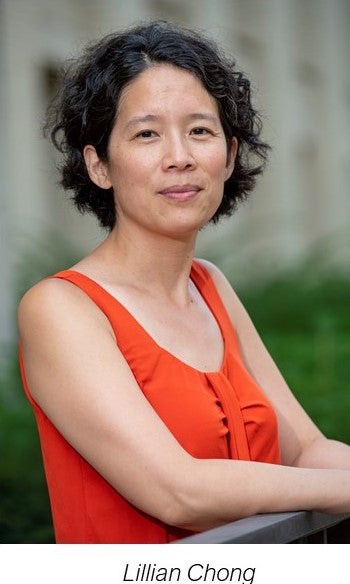 Lilian Chong won a Career Award in 2009 as a junior faculty. Now an associate professor in chemistry, her grant supported the development of an innovative advanced simulation method to reach longer time scale motions of proteins.
Lilian Chong won a Career Award in 2009 as a junior faculty. Now an associate professor in chemistry, her grant supported the development of an innovative advanced simulation method to reach longer time scale motions of proteins.
That simulation program -- called WESTPA -- has become a standard in the field. Work financed by the grant became the genesis of her teaching efforts in computational drug discovery and creative science writing.
"The CAREER grant seeded a lot of long-standing efforts that are still going strong," says Chong. She recently applied WESTPA in a collaboration that developed groundbreaking simulations of the seconds-long time scale opening of the spike of the COVID-19 virus. (See the simulations at: The Coronavirus in a Tiny Drop - The New York Times).
Pitt's newest CAREER grant awardee is Anne-Ruxandra Carvunis, assistant professor in computational and systems biology, whose grant became active January 15. Carvunis shook the field of genomic evolution with a landmark 2012 Nature paper identifying genes that were beginning to code for proteins within so-called "dark matter DNA." Genes that were supposed to be doing nothing were evolving.
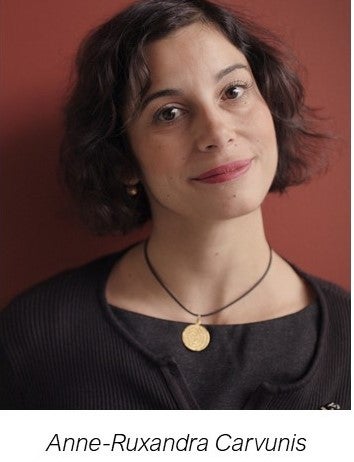 Her passion for evolution informs the outreach aspect of her grant. "I want to improve evolutionary literacy in America," she explains. "Understanding evolutionary science means understanding life. Young people need to understand that organisms are always evolving." She is assembling a network of educators at primarily undergraduate institutions who will introduce her lab's work as a case study that students treat as "a blank canvas." Caravunis will participate in the March 2 discussion via asynchronous video.
Her passion for evolution informs the outreach aspect of her grant. "I want to improve evolutionary literacy in America," she explains. "Understanding evolutionary science means understanding life. Young people need to understand that organisms are always evolving." She is assembling a network of educators at primarily undergraduate institutions who will introduce her lab's work as a case study that students treat as "a blank canvas." Caravunis will participate in the March 2 discussion via asynchronous video.
Reflecting on the impact of her CAREER grant, Leanne Gilbertson reflects that success with prestigious awards is valuable for the rentire research community.
“Having those resources elevates the caliber of the school," she says. "It elevates your possibilities -- you can shoot for the moon."
